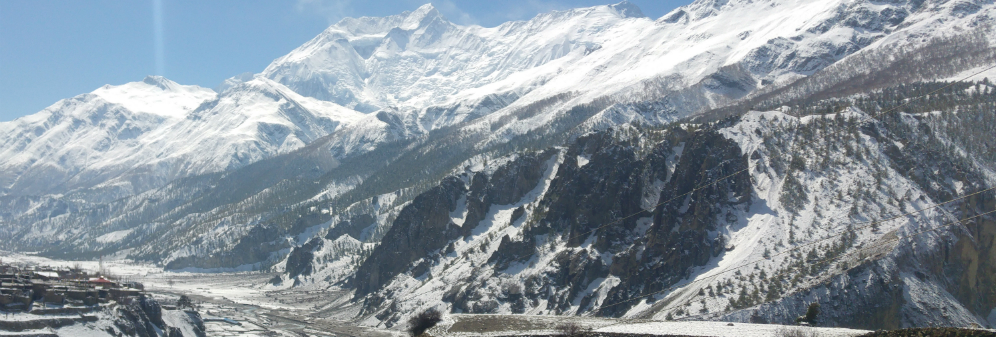Could disappearing glaciers threaten food security?
Historians don’t usually find themselves climbing glaciers 3,500 metres above sea level, but that’s just what Dr Dan Haines has been doing in Himalayan Nepal.
The challenge
We know that a warming climate means this area’s vital, natural reservoirs are disappearing fast. What we don’t know is how that affects people’s ability to feed themselves – and right now, there’s very little available data to help anyone prepare for a future with less water.
What we’re doing
This is ground-breaking collaboration. Our diverse research team includes glaciologists and hydrologists, who are measuring the volume of glacial meltwater in local rivers throughout the year. By learning when and where meltwater swells rivers, we can pinpoint the communities most at risk from future water shortages.
Meanwhile, our social scientists are visiting those same communities, often economically marginalised farmers for whom water is critical to survival, to appreciate their most pressing water use issues.
As an environmental historian and an expert in water politics, I’m putting everything into context. Understanding past directives and behaviour helps explain current practices, like irrigation methods and access to water. So I’m digging into historical government water policy and local responses to previous floods and droughts to see what it can teach us for the future.
How it helps
By combining our findings with the knowledge of the communities who live here, our recommendations will help NGOs, governments and local people adapt to increasingly unpredictable water supplies.
It isn’t just the farmers of mountainous Nepal who might benefit from our work, either. Glacial meltwater flows down from these slopes into great rivers like the Ganga (Ganges), where it goes on to be used for irrigation, sanitation and drinking through large parts of South Asia. With food security across much of the continent potentially at risk, our research has deep significance for hundreds of millions of people. Which is worth a historian swapping his desk for a glacier.
Lead researcher
Related research centres
Partner organisations
- University of Leeds
- Practical Action
Global challenge research
We're tackling the world's biggest problems through collaboration and innovation.

